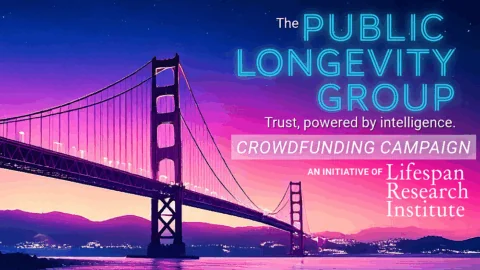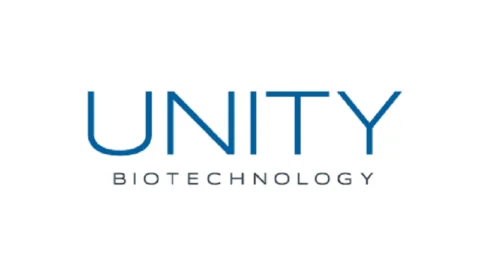Unity Biotechnology

Organization Description
UNITY was a biotech company working on senolytics for the removal of senescent cells, which accumulate with age, drive chronic inflammation, and spur various age-related diseases. Founded by scientific founders Drs. Jan van Deursen, Judith Campisi, and Daohong Zhou along with serial biotech entrepreneur Nathaniel (Ned) David, the company was the first startup established to develop senolytics as therapies to prevent human age-related disease.
In May 2025, following the failure of UBX1325 to reach its prespecified endpoint in the Phase 2b ASPIRE trial, the company announced that it would lay off its entire workforce and work to minimize cash burn as it pursues new partnerships with companies with deep experience in ophthalmologic diseases. As of September 2025, the company’s website has been reduced to a single page, announcing that the company is no longer in operation.
UBX101
The company’s first lead candidate, UBX0101, was designed to treat osteoarthritis. It was unusual amongst senolytic small molecules as an inhibitor of the p53/MDM2 protein interaction. Disruption of this protein interaction triggers the destruction of senescent cells.
The U.S. FDA cleared an Investigational New Drug (IND) application for UBX0101, and UNITY initiated a Phase I clinical trial in osteoarthritis of the knee in the second quarter of 2018. The drug was delivered locally via intra-articular injection. Initial results from the Phase I study were positive, with clinically significant improvements in patients with osteoarthritis.
Unfortunately, as of August 2020, following disappointing results from the Phase II osteoarthritis human trial, UNITY discontinued the development of UBX0101. The company stated its intention to complete collection of the Phase 2 24-week data, as well as that from the ongoing Phase 1b high-dose, repeat-dose study in the second half of 2020; it is not clear if these were publicly reported.
UBX1325
UNITY’s second drug candidate, UBX1325, targets specific members of the Bcl-2 family of apoptosis-resistance proteins, which some senescent cells use to evade destruction and remain alive.
UNITY evaluated UBX1325 for the potential treatment of age-related diseases of the eye, including age-related macular degeneration (ARMD), diabetic macular edema (DME), and proliferative diabetic retinopathy.
In July 2021, UNITY issued a press release announcing the 8-week preliminary results of a phase I study of UBX1325 in patients with DME and wet ARMD. Although a safety study, the results showed that — along with being safe — UBX1325 improved vision and structural measures of disease progression (central subfield thickness (CST), and sub- and intra-retinal fluid). In October 2021, the 12-week results showed sustained improvements in vision & structure. Further results released in November 2021 showed that after 24 weeks DME patients had gained almost 10 ETDRS letters in best corrected visual acuity.
UNITY then launched a Phase IIa trial in subjects with DME, and enrolled additional ARMD patients in the Phase I trial to support a Phase II trial for ARMD originally scheduled to start in the first half of 2022.
On March 27, 2023 UNITY announced the results of the ENVISION study, which tested UBX1325 in persons with wet ARMD who were not achieving optimum benefit with ongoing standard-of-care anti-VEGF therapy. UBX1325 maintained visual acuity in patients through 24 weeks, with less than one ETDRS letter lost on average and most patients not requiring a “rescue” round of anti-VEGF treatment. However, UBX1325 monotherapy did not achieve its primary endpoint (noninferiority) through 24 weeks, in part due to an unexpected gain of 3.5 EDTRS letters in the anti-VEGF control arm.
In May of 2025, UNITY announced the complete 36-week results from the Phase IIb ASPIRE trial in DME. UBX1325 was statistically non-inferior to anti-VEGF therapy (aflibercept/Eylea®) at week 36 and at most interim weeks, but did not achieve noninferiority at 20 weeks, which was the prespecified endpoint.





